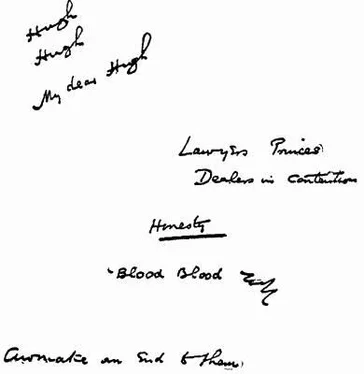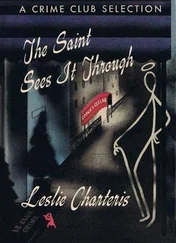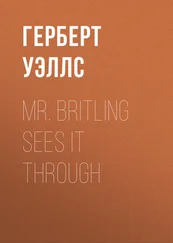Herbert Wells - Mr. Britling Sees It Through
Здесь есть возможность читать онлайн «Herbert Wells - Mr. Britling Sees It Through» весь текст электронной книги совершенно бесплатно (целиком полную версию без сокращений). В некоторых случаях можно слушать аудио, скачать через торрент в формате fb2 и присутствует краткое содержание. Жанр: Классическая проза, на английском языке. Описание произведения, (предисловие) а так же отзывы посетителей доступны на портале библиотеки ЛибКат.
- Название:Mr. Britling Sees It Through
- Автор:
- Жанр:
- Год:неизвестен
- ISBN:нет данных
- Рейтинг книги:4 / 5. Голосов: 1
-
Избранное:Добавить в избранное
- Отзывы:
-
Ваша оценка:
- 80
- 1
- 2
- 3
- 4
- 5
Mr. Britling Sees It Through: краткое содержание, описание и аннотация
Предлагаем к чтению аннотацию, описание, краткое содержание или предисловие (зависит от того, что написал сам автор книги «Mr. Britling Sees It Through»). Если вы не нашли необходимую информацию о книге — напишите в комментариях, мы постараемся отыскать её.
Mr. Britling Sees It Through — читать онлайн бесплатно полную книгу (весь текст) целиком
Ниже представлен текст книги, разбитый по страницам. Система сохранения места последней прочитанной страницы, позволяет с удобством читать онлайн бесплатно книгу «Mr. Britling Sees It Through», без необходимости каждый раз заново искать на чём Вы остановились. Поставьте закладку, и сможете в любой момент перейти на страницу, на которой закончили чтение.
Интервал:
Закладка:
Teddy had been shot through the upper arm....
"My hand has gone, dear little Letty. It's my left hand, luckily. I shall have to wear a hook like some old pirate...."
There was something about his being taken prisoner. "That other officer"—that was Mr. Direck's officer—"had been lying there for days." Teddy had been shot through the upper arm, and stunned by a falling beam. When he came to he was disarmed, with a German standing over him....
Then afterwards he had escaped. In quite a little time he had escaped. He had been in a railway station somewhere in Belgium; locked in a waiting-room with three or four French prisoners, and the junction had been bombed by French and British aeroplanes. Their guard and two of the prisoners had been killed. In the confusion the others had got away into the town. There were trucks of hay on fire, and a store of petrol was in danger. "After that one was bound to escape. One would have been shot if one had been found wandering about."
The bomb had driven some splinters of glass and corrugated iron into Teddy's wrist; it seemed a small place at first; it didn't trouble him for weeks. But then some dirt got into it.
In the narrow cobbled street beyond the station he had happened upon a woman who knew no English, but who took him to a priest, and the priest had hidden him.
Letty did not piece together the whole story at first. She did not want the story very much; she wanted to know about this hand and arm.
There would be queer things in the story when it came to be told. There was an old peasant who had made Teddy work in his fields in spite of his smashed and aching arm, and who had pointed to a passing German when Teddy demurred; there were the people called "they" who had at that time organised the escape of stragglers into Holland. There was the night watch, those long nights in succession before the dash for liberty. But Letty's concern was all with the hand. Inside the sling there was something that hurt the imagination, something bandaged, a stump. She could not think of it. She could not get away from the thought of it.
"But why did you lose your hand?"
It was only a little place at first, and then it got painful....
"But I didn't go into a hospital because I was afraid they would intern me, and so I wouldn't be able to come home. And I was dying to come home. I was—homesick. No one was ever so homesick. I've thought of this place and the garden, and how one looked out of the window at the passers-by, a thousand times. I seemed always to be seeing them. Old Dimple with his benevolent smile, and Mrs. Wolker at the end cottage, and how she used to fetch her beer and wink when she caught us looking at her, and little Charlie Slobberface sniffing on his way to the pigs and all the rest of them. And you, Letty. Particularly you. And how we used to lean on the window-sill with our shoulders touching, and your cheek just in front of my eyes.... And nothing aching at all in one....
"How I thought of that and longed for that!...
"And so, you see, I didn't go to the hospital. I kept hoping to get to England first. And I left it too long...."
"Life's come back to me with you!" said Letty. "Until just to-day I've believed you'd come back. And to-day—I doubted.... I thought it was all over—all the real life, love and the dear fun of things, and that there was nothing before me, nothing before me but just holding out—and keeping your memory.... Poor arm. Poor arm. And being kind to people. And pretending you were alive somewhere.... I'll not care about the arm. In a little while.... I'm glad you've gone, but I'm gladder you're back and can never go again.... And I will be your right hand, dear, and your left hand and all your hands. Both my hands for your dear lost left one. You shall have three hands instead of two...."
§ 13
Letty stood by the window as close as she could to Teddy in a world that seemed wholly made up of unexpected things. She could not heed the others, it was only when Teddy spoke to the others, or when they spoke to Teddy, that they existed for her.
For instance, Teddy was presently talking to Mr. Direck.
They had spoken about the Canadians who had come up and relieved the Essex men after the fight in which Teddy had been captured. And then it was manifest that Mr. Direck was talking of his regiment. "I'm not the only American who has gone Canadian—for the duration of the war."
He had got to his explanation at last.
"I've told a lie," he said triumphantly. "I've shifted my birthplace six hundred miles.
"Mind you, I don't admit a thing that Cissie has ever said about America—not one thing. You don't understand the sort of proposition America is up against. America is the New World, where there are no races and nations any more; she is the Melting Pot, from which we will cast the better state. I've believed that always—in spite of a thousand little things I believe it now. I go back on nothing. I'm not fighting as an American either. I'm fighting simply as myself.... I'm not going fighting for England, mind you. Don't you fancy that. I don't know I'm so particularly in love with a lot of English ways as to do that. I don't see how any one can be very much in love with your Empire, with its dead-alive Court, its artful politicians, its lords and ladies and snobs, its way with the Irish and its way with India, and everybody shifting responsibility and telling lies about your common people. I'm not going fighting for England. I'm going fighting for Cissie—and justice and Belgium and all that—but more particularly for Cissie. And anyhow I can't look Pa Britling in the face any more.... And I want to see those trenches—close. I reckon they're a thing it will be interesting to talk about some day.... So I'm going," said Mr. Direck. "But chiefly—it's Cissie. See?"
Cissie had come and stood by the side of him.
She looked from poor broken Teddy to him and back again.
"Up to now," she said, "I've wanted you to go...."
Tears came into her eyes.
"I suppose I must let you go," she said. "Oh! I'd hate you not to go...."
§ 14
"Good God! how old the Master looks!" cried Teddy suddenly.
He was standing at the window, and as Mr. Direck came forward inquiringly he pointed to the figure of Mr. Britling passing along the road towards the Dower House.
"He does look old. I hadn't noticed," said Mr. Direck.
"Why, he's gone grey!" cried Teddy, peering. "He wasn't grey when I left."
They watched the knickerbockered figure of Mr. Britling receding up the hill, atlas and papers in his hands behind his back.
"I must go out to him," said Teddy, disengaging himself from Letty.
"No," she said, arresting him with her hand.
"But he will be glad—"
She stood in her husband's way. She had a vision of Mr. Britling suddenly called out of his dreams of God ruling the united states of the world, to rejoice at Teddy's restoration....
"No," she said; "it will only make him think again of Hugh—and how he died. Don't go out, Teddy. Not now. What does he care for you ?... Let him rest from such things.... Leave him to dream over his atlas.... He isn't so desolate—if you knew.... I will tell you, Teddy—when I can....
"But just now—No, he will think of Hugh again.... Let him go.... He has God and his atlas there.... They're more than you think."
CHAPTER THE SECOND
MR. BRITLING WRITES UNTIL SUNRISE
§ 1
It was some weeks later. It was now the middle of November, and Mr. Britling, very warmly wrapped in his thick dressing-gown and his thick llama wool pyjamas, was sitting at his night desk, and working ever and again at an essay, an essay of preposterous ambitions, for the title of it was "The Better Government of the World."
Читать дальшеИнтервал:
Закладка:
Похожие книги на «Mr. Britling Sees It Through»
Представляем Вашему вниманию похожие книги на «Mr. Britling Sees It Through» списком для выбора. Мы отобрали схожую по названию и смыслу литературу в надежде предоставить читателям больше вариантов отыскать новые, интересные, ещё непрочитанные произведения.
Обсуждение, отзывы о книге «Mr. Britling Sees It Through» и просто собственные мнения читателей. Оставьте ваши комментарии, напишите, что Вы думаете о произведении, его смысле или главных героях. Укажите что конкретно понравилось, а что нет, и почему Вы так считаете.






